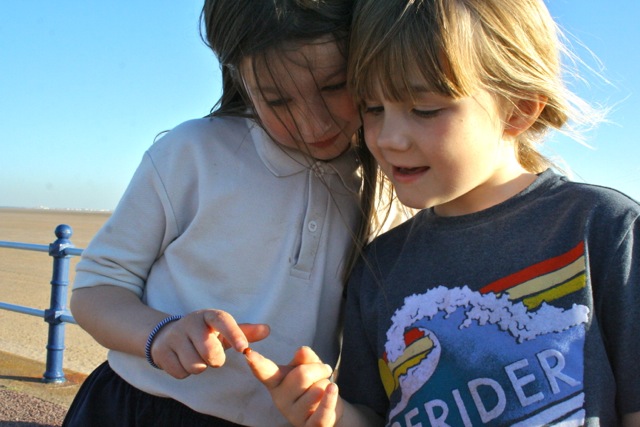Mumsnet is in the middle of a campaign for Better Miscarriage Care, and I’ve been mulling over whether to blog about it, or not.
Not because I think miscarriage is taboo (one in three women will have a miscarriage at some point, so it’s about as taboo as driving a Ford Focus) but because, actually, my experience of miscarriage care in the NHS was pretty positive, overall.
Sometimes it was amazing, sometimes a bit less so. But what made the difference wasn’t practice, policies, facilities, or anything of the kind – it’s people.
I started bleeding on a Friday, the day before my wedding, when I was about 7 or 8 weeks pregnant. I visited my GP, who couldn’t see a problem, but booked me a scan for first thing Tuesday morning (it was a Bank Holiday weekend) and told me I was absolutely allowed to drink champagne on my wedding day and it wouldn’t make the slightest bit of difference to anything.
When I had the scan on the Tuesday morning, the doctor kindly explained it didn’t look good, but she wanted to wait a week to be absolutely positive that the pregnancy had failed before booking me in for surgery. “We want to give the pregnancy every chance to succeed,” she said.
One cancelled honeymoon and day surgery later, I came around from a general anaesthetic to the sound of 'The Tide is High' and a nurse stroking my hair and telling me that it would be okay, it was a fresh start.
Returning from a delayed honeymoon two months later, I was pregnant again and it all went fine. For about two weeks. Then I started to bleed. Not discreet, ladylike bleeding either – at regular intervals throughout my pregnancy I’d find myself standing in a pool of blood. Bit stressful.
I had around 12 ‘threatened miscarriages’ during my pregnancy, and it wasn’t the most fun time of my life. Flea’s middle name is ‘Hope’ because I reckoned some days that was about all that got us through.
There were a lot of scans, a lot of tests, a lot of people peering at my cervix with torches. But the people who cared for us made the experience so much easier.
There was the nurse who hugged me after my first emergency scan, when I realised I was still pregnant, and my legs almost buckled under me.
There was the consultant who held my hand while he scanned my abdomen after another heavy bleed, and said, “Don’t worry. Getting pregnant is the hard bit, your baby’s beautiful and it’s my job to keep her that way.”
Not all the staff we met were equally understanding – I remember asking a stand-in GP whether it was safe to fly to the West Coast of the US, and being told, “Well, you could have a miscarriage, or a miscarriage and a holiday – I know what I’d rather!” (I’d rather have punched him in the face, but that’s probably just because I was hormonal *cough*).
Then there was the doctor at A&E who advised me to “keep anything meaningful in a plastic bag”. Which was nice.
I suppose what I think is that there’s no way to make miscarriage anything other than a sad and fairly horrible experience, and it’s one that’s shared by millions of other women. But I think what makes that kind of experience better is people – not policy.
When I look back on my miscarriage, and subsequent threatened miscarriages, I don't remember the waiting time for the scan, or whether I was given a good or bad leaflet to take home with me. I can't remember if I was in the right or wrong waiting room, or whether anyone gave me a telephone number for a support group.
I do remember that the consultant held my hand when I was terrified, and it made that moment a little easier. I'm just not sure how you legislate for that.






